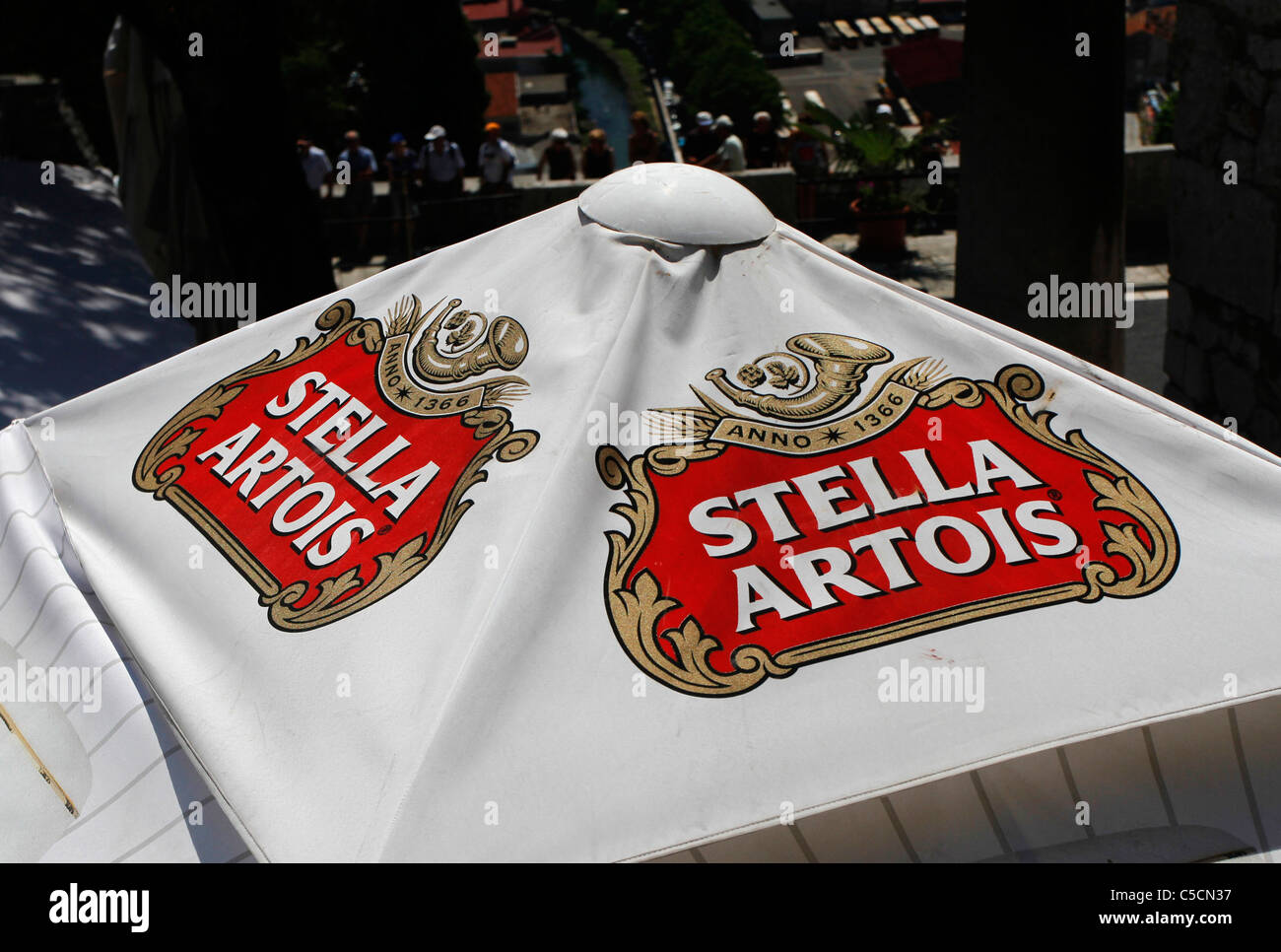

2006 - Total production volume reaches over 10 million hectoliters annually.1993 - InBev open a new fully automated brewery in Leuven.1960 - 1 million hectoliters of Stella Artois is produced annually for the first time.1930 - The first Stella Artois beer is exported to the European market.1926 - Stella Artois was launched initially as a seasonal beer especially for the Christmas holiday market.1717 - Sebastian Artois gives his name to the brewery.1708 - Sebastian Artois becomes the master brewer at Den Horen.1366 - Records of taxes exist on Leuven's Den Horen Brewery, a brewery that is still in existence today.Stella Artois is available on draught and in several packaged sizes, including a 275 ml bottle, 284 ml bottle, a 330 ml bottle, a 440 ml can, a 50cl can, a pint size can known as "La Grande Biere" (568 ml), 66 cl bottle, 70 cl bottle and a 1-liter bottle.

The frame that surrounds the name Stella Artois on the label refers to the traditional style of window frame found in Flemish architecture. The name Artois was coupled to the brewery in 1708, when new owner Sebastian Artois achieved the title of Master Brewer. The city's tax records dated 1366 mention the existence of a local brewpub called Den Hoorn, ('Hoorn' in Flemish meaning 'Horn' in English, as is represented in the logo on the beer label). The Anno 1366 on the Stella Artois logo refers to the origin of brewing in the city of Leuven. Much of the Stella Artois exported from Europe is currently produced at the InBev Brewery in Belgium, and packaged in the Beck's brewery in Bremen, Germany. It is brewed in Belgium and the United Kingdom, as well as other countries, including Australia. In its home market of Belgium, however, it is marketed, priced and sold as a regular lager. Stella is promoted as an international brand by its brewer, InBev.

Stella Artois is a 5.2% ABV global lager first brewed in Leuven, Belgium in 1926 as a Christmas brew, and named Stella after the Latin for "star." Īlthough Belgium is best known internationally for its ales, the so-called "table beers," the bottom-fermented pilsner lagers such as Stella Artois head the list for domestic consumption, making up almost 75% of Belgian beer production.


 0 kommentar(er)
0 kommentar(er)
